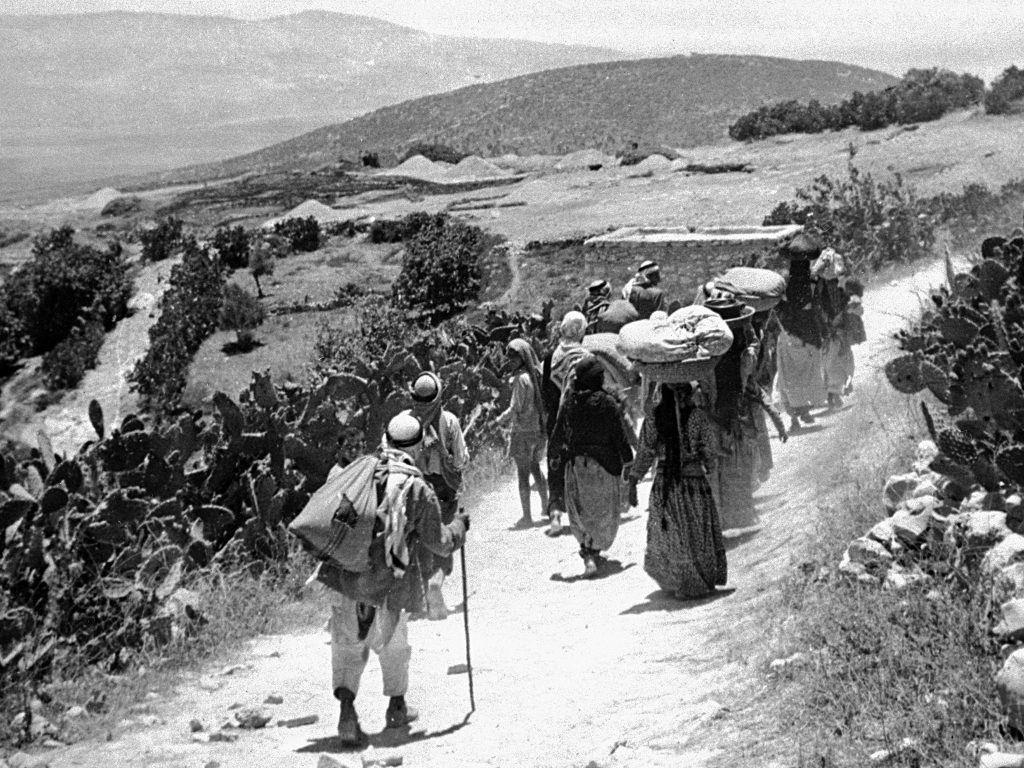Australia/Israel Review
Scribblings: A refugee consensus?
Jun 29, 2022 | Tzvi Fleischer

Last month, the AIR published an article by Israeli scholars Roie Yellinek and Assaf Malach detailing how, historically, Arab states often paid lip service to Palestinian demands while in fact acting against Palestinian interests to serve their own ulterior motives.
Following up on their work, here is what a well-known Zionist writer wrote recently about how the Arab states exploited and abused the Palestinian refugees in the wake of the 1948 war:
Palestinians… have received probably more emotional and political support from others than any refugee community in modern times. While such support has often involved considerable financial help, it has also generally been more loud political noise than anything substantive…
This illusion of ‘return’ has served some Arab regimes’ interests by giving them a powerful excuse to avoid integrating Palestinian refugees as citizens… These regimes feared that these refugees-cum-citizens would alter their demographics and threaten their ruling order. Consequently, the excuse given was that since the Palestinians would eventually return to Palestine, giving them citizenship would technically undermine their ‘right of return’ and hence they should be denied citizenship. Palestinian leaders actively colluded in perpetuating this tragedy.
Oh wait, that wasn’t a Zionist writer at all. That was Ali Shihabi, a Saudi columnist who also serves as an advisor to Saudi Arabia’s de facto ruler Crown Prince Muhammed bin Salman (MbS), writing in Al Arabiya on June 8.
Shihabi is indeed no Zionist – he also talks of Israel’s establishment as “Jewish settler colonialism”. But he does go a long way toward admitting that the Palestinian refugee problem has been maintained and exacerbated for more than 70-plus years by Arab policy, and that the supposed goal or “right” of Palestinians to return to ancestral homes in Israel is simply a pipe dream. He instead proposes that Jordan take over the Palestinian populations of the West Bank and Gaza and provide them citizenship and a better life as part of a peace deal. He believes Palestinians, who “have grown up under Israeli occupation or in refugee camps with minimal education, training, and work opportunities,” can be persuaded to accept this because:
They will realise, once this idea is explained to them, that a futile struggle to regain their ancestral land should not be their priority anymore. The issue for them and their children going forward needs to be the ability to live a productive, fulfilling life once they are no longer stateless.
The whole article is striking because it demonstrates that while Israelis and the leaders of the conservative Sunni monarchies of the Arab world still disagree about a great deal, they are coming remarkably close to a shared consensus about what should happen in the future with regard to the Palestinians.
This once unthinkable pragmatic change among Arab leaders provides real hope that the flourishing relationships being created by the Abraham Accords can eventually lead to the unblocking of the long-stuck Israeli-Palestinian peace process – with backing, mediation and support from conservative Arab states.
Shireen Abu Akleh’s colleagues in tragedy
We still do not know the exact sequence of events that led to the tragic shooting death of Palestinian Al Jazeera journalist Shireen Abu Akleh on May 11, during a firefight between IDF forces and local Palestinian gunmen in Jenin. Yet what is striking is how central her death has become to all pro-Palestinian campaigns against Israel.
Virtually every single article, blog, social media post or demonstration I see arguing a pro-Palestinian position references her death as a central plank of the case against Israel, whether advocating for Australia to recognise “Palestine”; calling for boycotts of a film festival featuring an Israeli documentary; insisting “Anti-Zionism is not anti-Semitism” while advocating Israel be destroyed; or absurdly arguing that Israel should be regarded as an “Apartheid state”.
I genuinely do not understand this phenomenon. Whatever the true circumstances, Abu Akleh’s death provides no actual evidence or argument for any of these claims. Also, while Abu Akleh was a minor celebrity among Palestinians and other viewers of Al Jazeera in Arabic prior to her death, I find it difficult to believe that many Australians or other Westerners had ever heard of her before May 11. So why has her death become so iconic?
Abu Akleh’s death should of course be properly mourned and the circumstances throroughly investigated – while the sacrifice she made by constantly putting herself in harm’s way by running into combat zones to do journalism deserves to be honoured and appreciated.
But on this last point, she is hardly alone – she has literally thousands of journalistic colleagues who similarly paid the ultimate price for doing their jobs. A report by the International Federation of Journalists published last year found that 2,658 journalists had been killed trying to do their jobs in the years between 1990 and 2020, including 339 killed in Iraq, 178 in Mexico, 160 in the Philippines, 138 in Pakistan and 116 in India.
Alternative numbers come from the Committee to Protect Journalists (CPJ), which has compiled a database of 1,449 journalists killed between 1992 and 2022. Chillingly, that database is being expanded all the time. For instance, since Russia launched its invasion of Ukraine in late February, CPJ lists no fewer than 12 journalists killed in that arena.
Incidentally, the CPJ database lists a total of 19 journalists killed since 1992 in Israel and the Palestinian territories in various circumstances, including Abu Akleh – too many, but also not high by the standard of global combat zones.
So, as I said, what happened to Shireen Abu Akleh was horrific, it needs to be investigated and she deserves to be remembered and honoured. But this also applies to the thousands of journalist colleagues who, like her, paid the ultimate price for trying to do their jobs – and whose names and faces are so rarely recalled.
Tags: Israel, Palestinians, refugees






